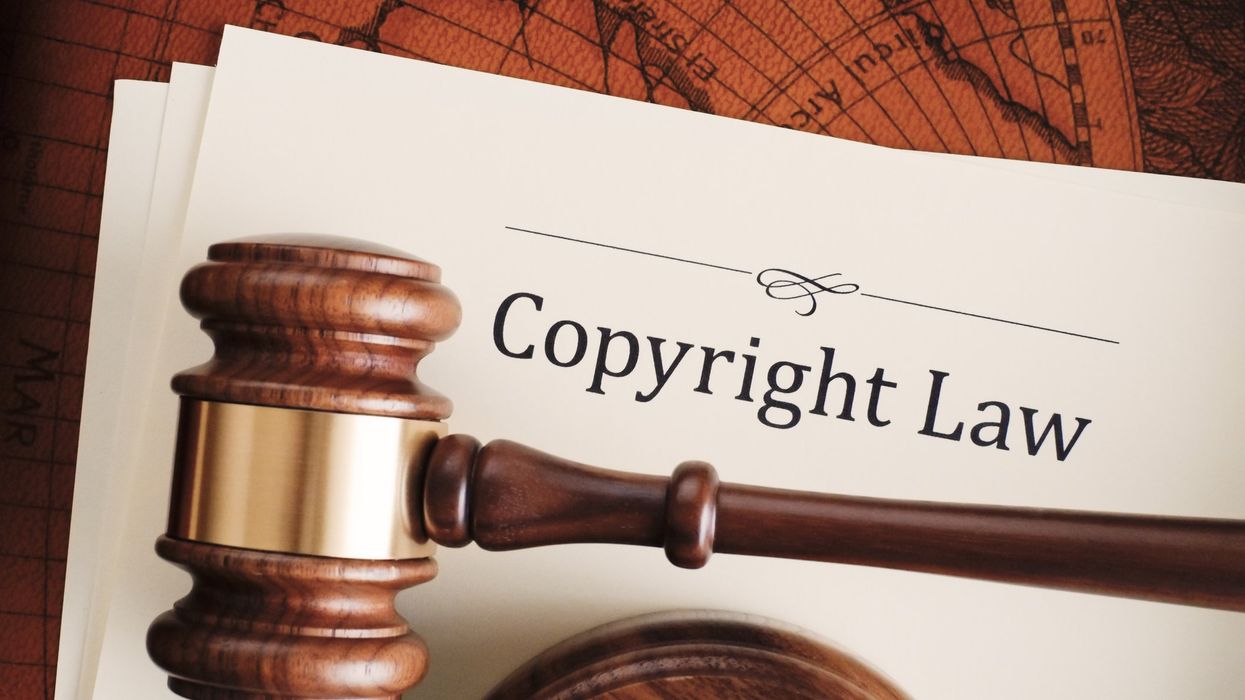
Creativeye99/Getty Images
In Canada, private organizations can hold copyrights on public legislation. Could that happen in America? As a matter of fact, yes.
Since Joe Biden assumed the presidency, millions of people from dozens of countries have flooded into the United States. Many of them have come seeking asylum, claiming they’re escaping political persecution.
Most of those claims are bogus, but the Biden administration won’t even get around to adjudicating their cases for years. But some asylum claims are valid and do not involve people who arrived in the U.S. against the law.
One such case is that of Gordon Knight of Canada.
Yes, Canada — a U.S. ally. A Canadian citizen has come to America legally seeking asylum from Justin Trudeau’s regime, but not for the reason you might expect. Knight wasn’t part of the trucking convoy opposed to COVID lockdowns that Trudeau smeared as the effort of neo-Nazis. No, Knight is threatened by a group called the Canadian Standards Association, an ostensibly nonprofit organization with close ties to the government that owns some of the country’s electrical law.
Yes, you read that correctly. A private organization owns public legislation.
A few years ago, a landmark Canadian court case held that people who draft laws own the copyright on those laws. I know how bizarre that sounds. Laws are passed, supposedly, for the good of the people. The people who write those laws supposedly work for the people. Their work should be no more subject to copyright than the images U.S. taxpayers enjoy from their publicly funded space missions.
But in an infamous case that’s come to be known as “Manson’s Law,” Canadian federal appeals court Judge Michael Manson ruled that law itself may be subject to copyright. The CSA owns its portion of Canada’s electrical law as a result.
The permutations from this mind-boggling decision are vast and varied. In Knight’s case, for instance, he published a book on electrical law and regulations. The CSA sued him for violating its copyright. Not only that, he faces criminal penalties, including the possibility of life in prison.
Hence, Knight’s flight to the United States in search of asylum. If the rulings all stand, Knight can lose his freedoms, and Canada can lose control of its electrical regulatory framework. Knight and his company, P.S. Knight, have been publishing books on Canada’s electrical code for decades. Suddenly, he’s an outlaw? The mild-mannered author of electrical manuals is now an enemy of the state?
A couple of side consequences flow from copyrighting electrical law. First, it creates a kind of pay-to-play system within Canada’s regulatory state. If drafters of law own the copyright, they own the right to make changes — and they can sell those changes to whoever wants them made. Law is now a commodity, made to order for the highest bidder, not safety or the good of the people.
Second, a hostile foreign power could, in effect, buy Canada’s electrical regulations and either shut the country’s power grid down or demand exorbitant payments for the privilege of using electricity.
It sounds mad, but it’s no idle threat. Knight himself is the copyright holder of some of Canada’s laws regulating electricity, and he’s been paid by various entities to use those laws. He didn’t set up this crazy system, and he’s not in favor of it. But he’s been publishing books on these laws for decades.
But the real question is: Could something like Knight’s crazy case happen here?
Yes. America’s equivalent of the CSA, the National Fire Protection Association, wants its own version of Manson’s Law either through a court ruling — which it is seeking — or through a bill now lurking in Congress.
Earlier this year, U.S. Senators Chris Coons (D-Del.), John Cornyn (R-Texas), Thom Tillis (R-N.C.), and Sheldon Whitehouse (D-R.I.) introduced the Pro Codes Act. The bill has been flying under the radar, but if it were to pass and become law, Knight says Americans could find themselves in his awful circumstances, with a private entity using copyright law to attack their ability to make a living and, ultimately, deprive them of their freedom.
Suppose the bill passes and, while no one is paying attention, China comes in and buys up the copyright on U.S. regulations?
Knight has written a book about all this, but good luck finding it on Amazon. The online behemoth pulled it and has made it unavailable. Good luck finding it anywhere. The Canadian government has been leaning on banks to make Knight a non-person and his books invisible, just as it did to the truckers who protested Trudeau’s mad COVID regime.
And it’s all over what should be public ownership of public laws and regulations and a citizen’s ability to publish explanatory works based on those laws. It can happen here. We shouldn’t let it.
A.J. Rice